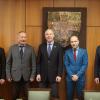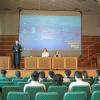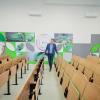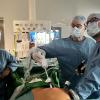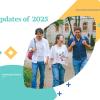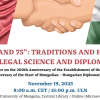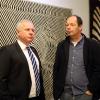Wine, Dialogue, and European Collaboration — A Conversation with dr. Florian Schweigert
2025
Oct
27
On the opening day of the 49th EDUC Steering Committee meeting, representatives of eight European universities gathered at Littke Pezsgőház in Pécs for a gala dinner celebrating collaboration and shared achievement. The evening, marked by a wine tasting from the PTE Research Institute for Viticulture and Oenology, and lively conversation, reflected the spirit of the alliance: connection, exchange, and the building of good relations. During the event, Professor Florian Schweigert was presented with an award in recognition of his outstanding contribution to the establishment and development of EDUC.
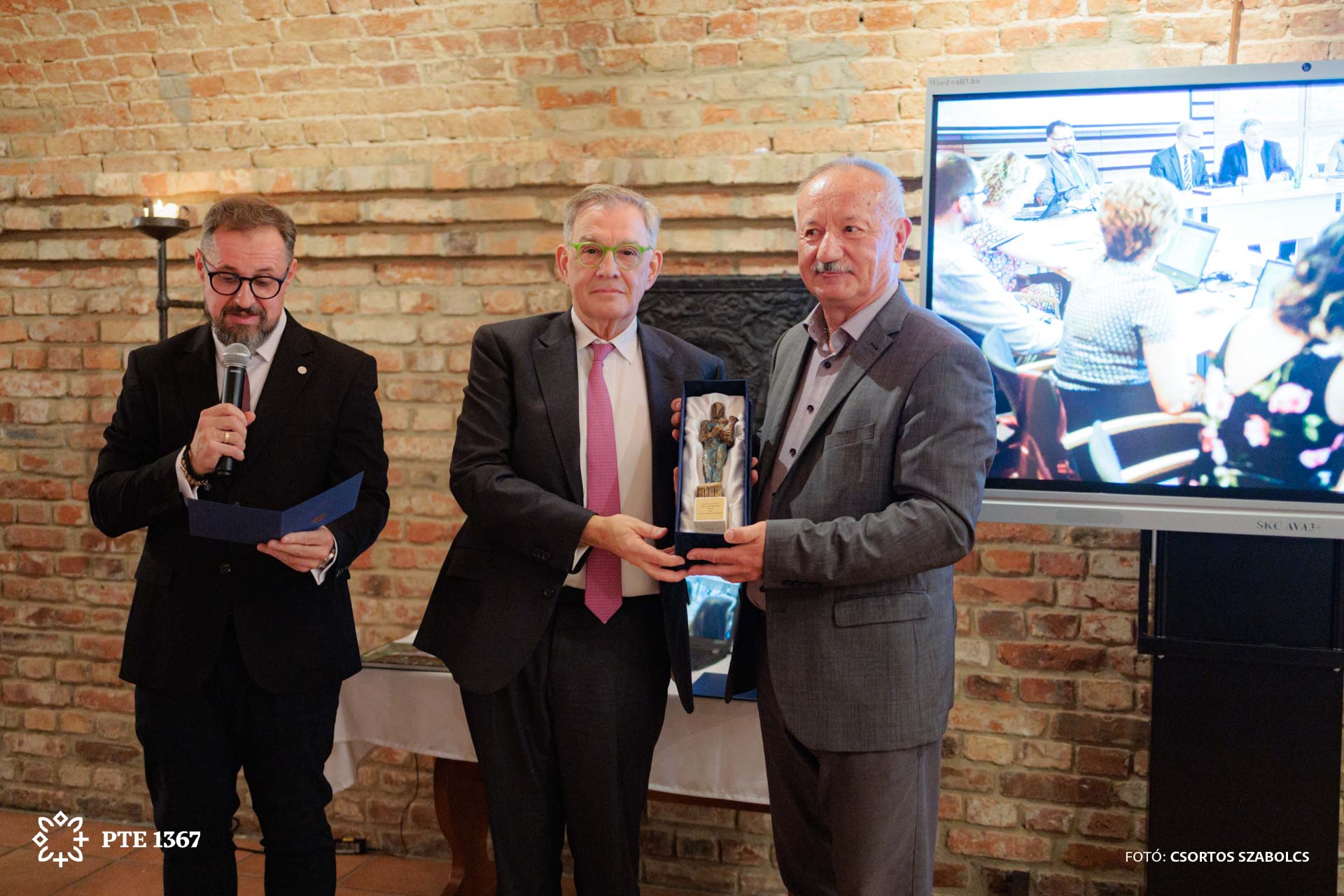
Before the dinner and the wine tasting, Professor István Tarrósy, director of the International Centre of the University of Pécs welcomed the guests at Littke Pezsgőház, one of the iconic locations of the cultural history of Pécs. After sharing some thoughts about the history and importance of the venue, he invited the rector of the University of Pécs, Dr Attila Miseta on stage, to present the laudation of Professor Schweigert, noting his important contributions to science, internationalisation, education, and his legacy in EDUC. He underlined the importance of this alliance, not as another exchange program, but as a melting pot of ideas, cultures. “The strength of EDUC lies in its diversity, working across national, and more importantly, mental borders” — closed his speech Dr Miseta.
“I receive this honour not just for myself, but for all of those who have been involved in this. Some of you have flanked my way since the beginning, some of you joined later. But you all serve the purpose of this alliance” — said professor Schweigert in his speech. “An idea has many parents. The birth of EDUC is also due to the fact that I had very nice co-presidents who supported this. We started out very enthusiastically, we had strong beliefs that we can change the world. The leitmotif for us, is combining digitalisation with the human aspects.”
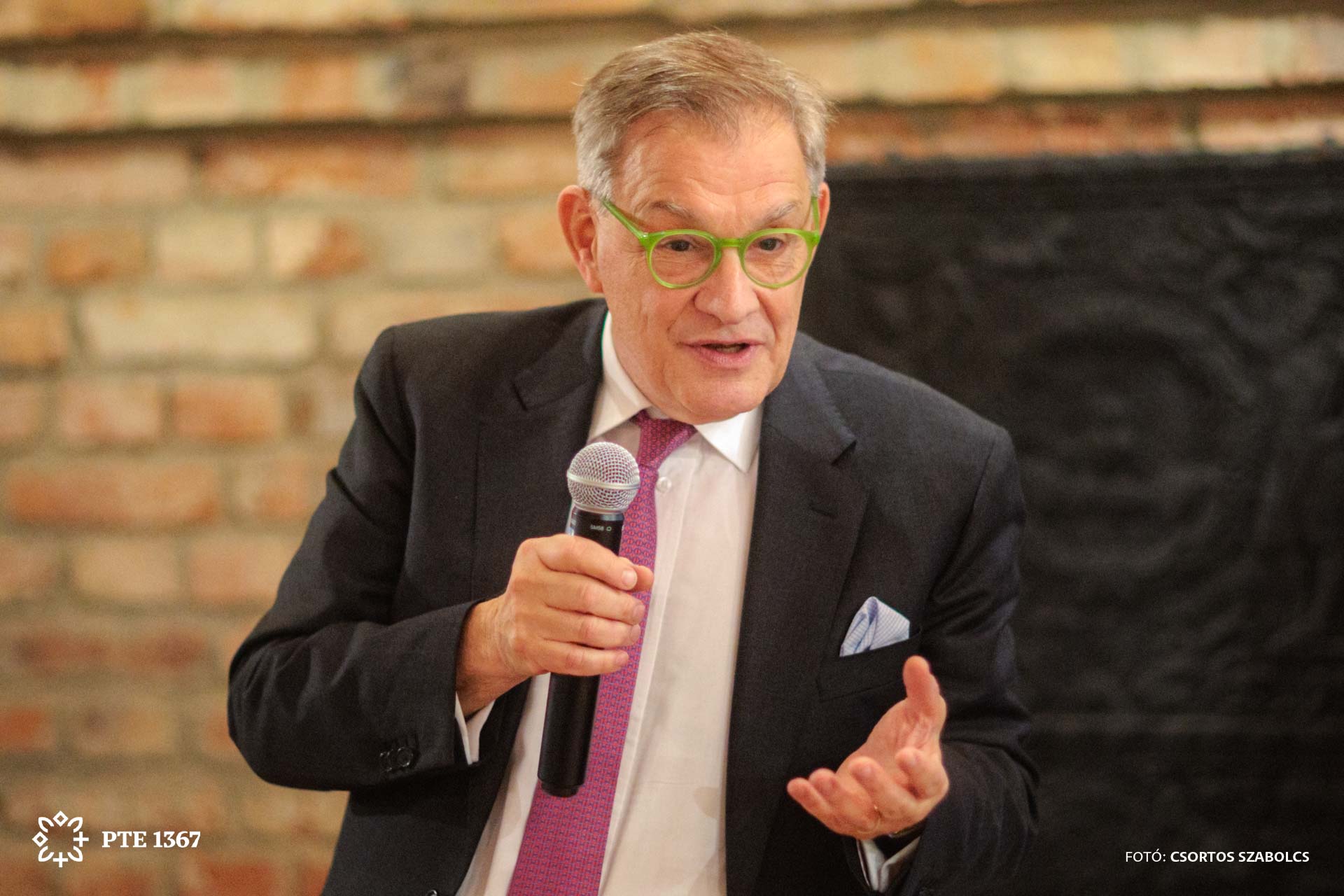
On the following day, the 14th of October we talked with Professor Schweigert about EDUC, Europeanisation, and the future of European academia.
How do you look back on the development and progress of EDUC since its creation?
Well, being here at the Steering Committee meeting brings back a lot of memories, especially about how EDUC was first created and founded.
We started out with very high ambitions, and we still have them, but over time, we’ve realised that the structural challenges are immense: national, regional, and institutional. Universities can find it difficult to adapt to transformative ideas.
EDUC was created to transform universities. It’s not just a project, even though it is still project-financed. The vision has always been to make it a structurally integrated part of the institutions themselves.
When I look at today’s discussions, I can see a huge effort to achieve that. And when I look at the number of participants, well, in the beginning there were only about ten of us sitting together. If you compare that first photo to the one we took yesterday, you can see the difference immediately: it’s a large crowd now.
Of course, growth is not only about numbers. Quantitative growth is an indicator of progress, but qualitatively, too, we now have so many interesting and talented people working within EDUC’s different units. The structures are taking shape, and the vision is gradually becoming reality. With all the challenges that every transformative process, whether in academia or industry, inevitably brings.
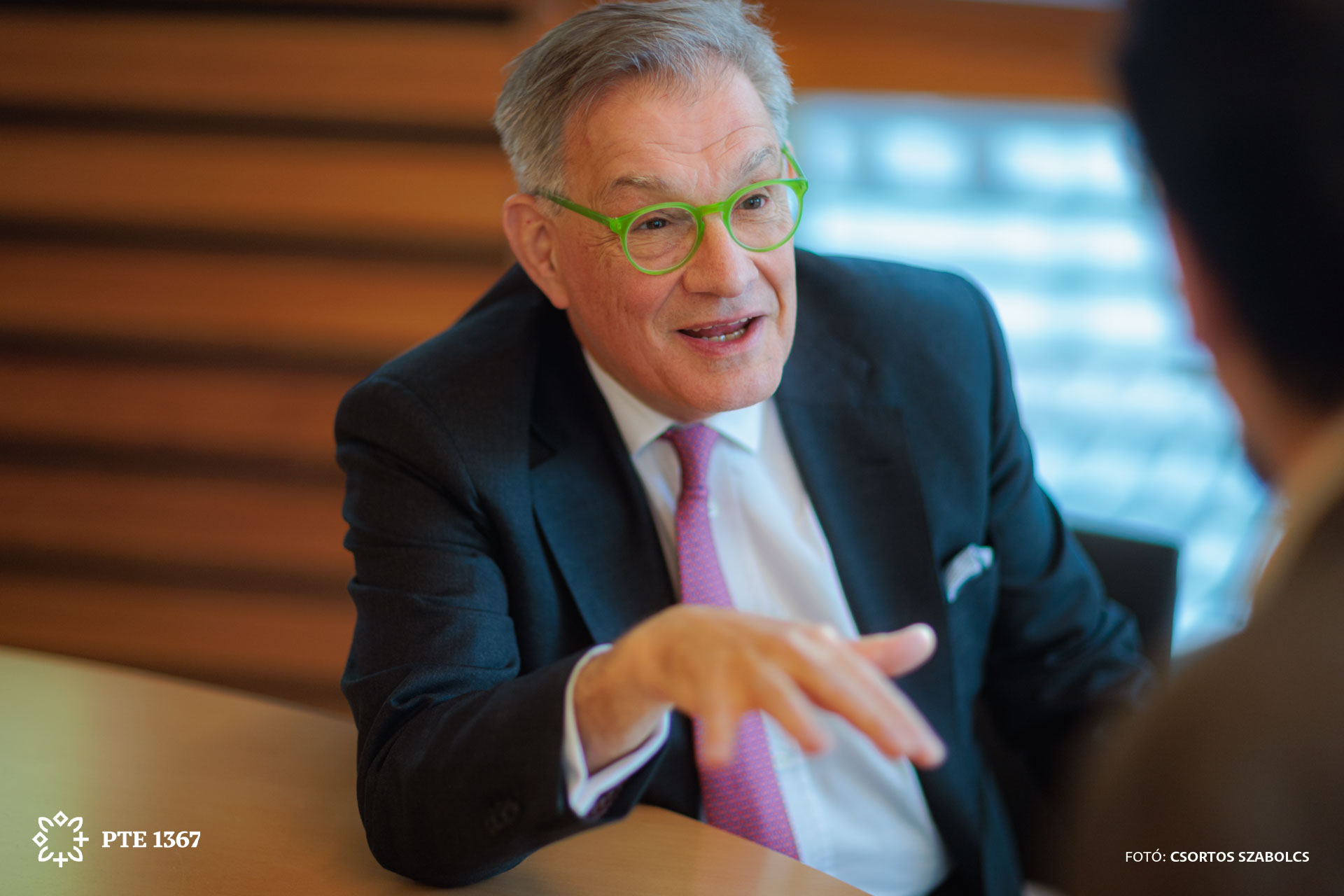
Looking back at the beginnings, what was your personal motivation to be involved in this project to the degree you did?
When we started discussing the idea that eventually became EDUC, my main motivation was the conviction that European universities needed a new way of working together. One that went beyond traditional exchange programs.
I’ve always believed that the future of higher education lies in collaboration, in learning from each other across languages, cultures, and disciplines.
At that time, we were facing rapid digital transformation on one side and growing societal fragmentation on the other. I felt that if we could combine these two worlds - the digital and the human - in a meaningful way, we could help shape a truly European academic space.
Personally, it was also about responsibility. As academics, we are privileged to work with young people who will shape the future. I wanted to contribute to building structures that give them a European perspective where mobility, openness, and cooperation are not exceptions, but part of everyday academic life.
What do you think makes EDUC distinctive from other university alliances?
Well, I think the leitmotif, as we would say in German, or the general storyline behind EDUC is already contained in its name.
EDUC stands for European Digital UniverCity. We deliberately changed the “S” into a “C”. Many people thought it was a mistake, but it was intentional.
If you look at the acronym, education and university are what you would naturally expect: they stand for the academic space of freedom, interaction, and exchange. But what makes EDUC different are the D and the C at the end. They represent the two essential components of our alliance.
The D stands for digital, symbolising the technological dimension. When we began, this meant digital tools, but today, I would say it’s about AI. Artificial intelligence is transforming our society, and universities must engage with it positively. It can improve structures, increase efficiency, and open new ways of integrating people and ideas. That’s the technological aspect of EDUC.
The C, meanwhile, stands for the citoyen, the citizen. It’s sometimes translated as “city,” but originally it came from the French word citoyen, meaning an inhabitant of a country, with all their rights and responsibilities. This is the human component of our alliance: how we think responsibly, act ethically, and contribute positively to society.
Thus, the basic idea behind EDUC is to bridge these two worlds: the technological and the human. It also aims to connect global responsibility with local engagement, serving communities while addressing broader global challenges. That, in essence, is what EDUC stands for.
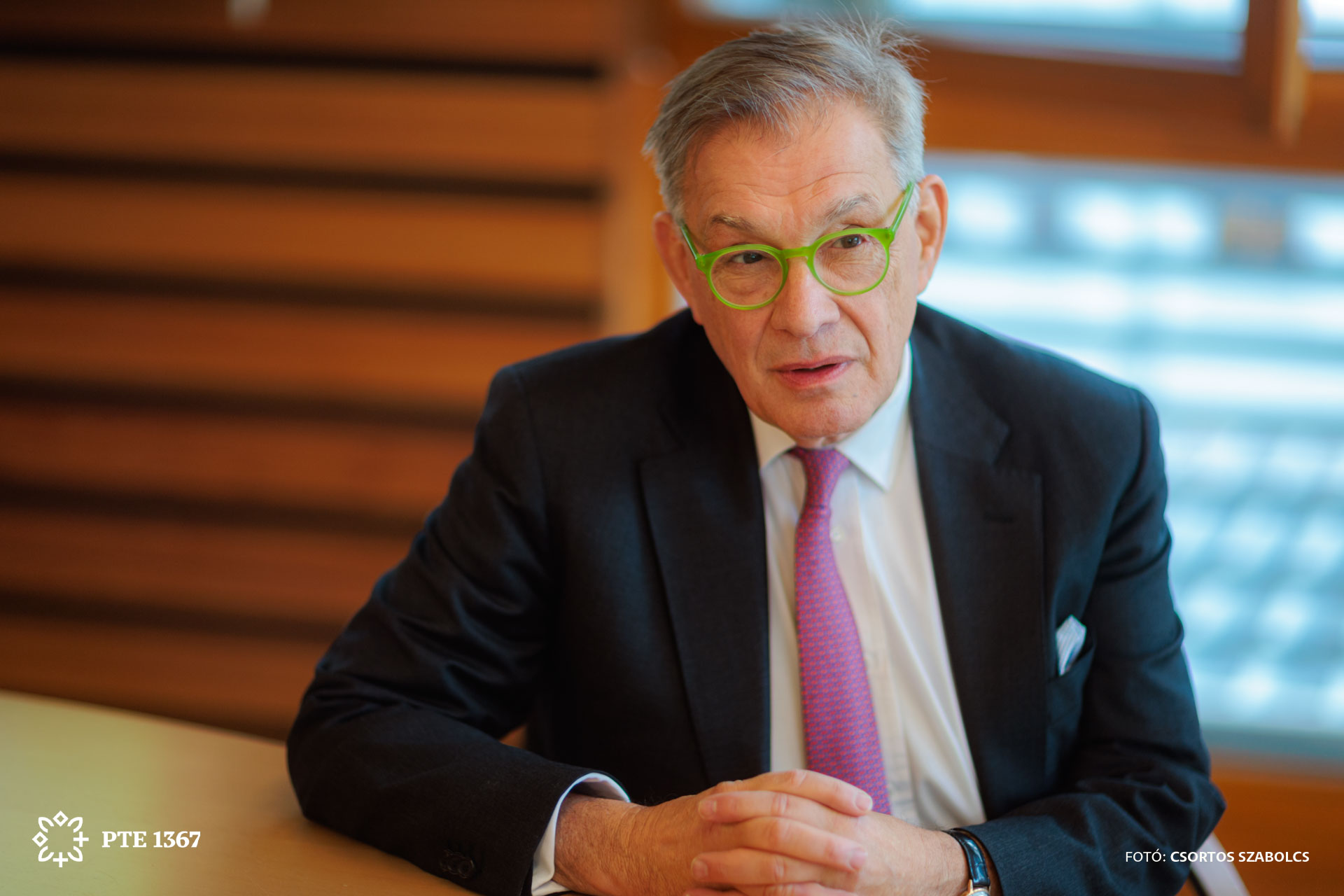
You’ve mentioned building bridges and creating alliances on a European level. Looking back at the history of EDUC, is there one particular project that stands out to you, something you’re especially proud of as an achievement?
I think there are several projects I could mention, but what I’m personally most proud of isn’t a single initiative, but the fact that we’ve managed to integrate EDUC into very rigid institutional structures. We’ve helped to build what I would call a more seamless student journey. It’s not perfect yet, there are still gaps, but it’s becoming more and more connected.
For me, one of the most significant moments was when members of staff came to me saying, “There are people at the university doing something within EDUC, and we didn’t even know about it.” And I thought, good! That means it’s becoming independent from administration, people are engaging with it and developing activities on their own, without needing our direct guidance.
That kind of “missing information” was a positive sign: it showed that EDUC was starting to take on a life of its own within the institutions.
We were also striving towards the idea of European professorships, and I think that ambition still represents an important goal for the future.
It’s a complex process, but we already have examples of success: for instance, a joint professorship between the University of Potsdam and the University of Rennes, which truly operates on a European level. These are the kind of cornerstones that show us how things are moving forward.
In education, too, we’ve managed to bring together the three essential dimensions, teaching, research, and outreach, and to connect them across institutions. All these individual steps might seem small on their own, but together they add up to something meaningful. They show that we are, slowly but surely, on the right path.
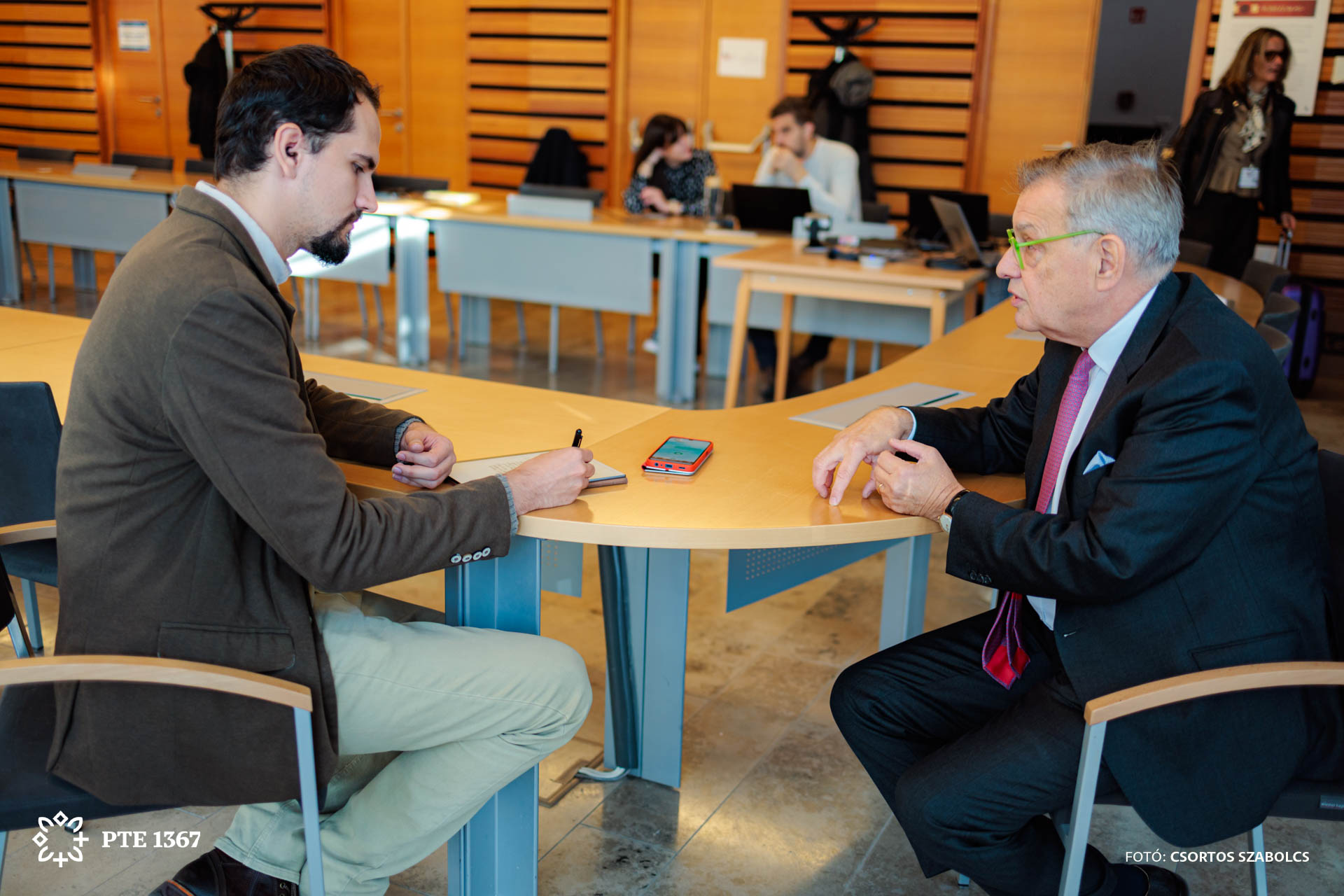
You mentioned earlier that we should move from international relations towards a stronger Europeanisation of certain aspects. Yet in recent years, the whole idea of European cooperation has also evolved quite a lot. How do you think these changes have affected universities and their role within Europe?
The European Union has developed in many positive directions, but also in ways that have brought new challenges: That’s what I referred to earlier as fragmentation. Still, I see such fragmentation as a natural part of any growth process.
Looking back at the origins of the European Union, it began with only a handful of member states. As it expanded, complexity naturally grew, along with a greater diversity of national interests. Within EDUC, encompassing seven nations and eight universities we can clearly observe that same diversity and, at times, the challenges that come with differing priorities.
Yet at the same time, as the world outside becomes more polarised, there is also a stronger awareness that we have to move closer together.
When I did my postdoc, there was no question: you went to the United States. Today, PhD students in my department go to Denmark, France, or Spain, and these experiences are fully recognised as valuable international exposure. It used to be that, unless you had spent time in the United States, you weren’t considered a well-rounded researcher. That perception has changed entirely, and I see it as a sign of Europe’s academic maturity and genuine integration in action. Of course, challenges remain. Europe continues to evolve, and at times overregulation, including in the academic field, can slow down our progress. There are numerous hurdles and constraints within European legislation that make it difficult to move as swiftly as we might wish. When we founded EDUC, we were not yet fully aware of these regional and European limitations. Over time, however, we have learned to navigate them and to continue advancing the cooperative spirit we envisioned.
What gives me confidence is seeing how, despite these complexities, the commitment of our partners and the creativity of our teams consistently turn limitations into opportunities for innovation. That resilience is, in itself, one of Europe’s greatest strengths.
- Log in to post comments
University of Pécs | Chancellery | IT Directorate | Portal group - 2020.
